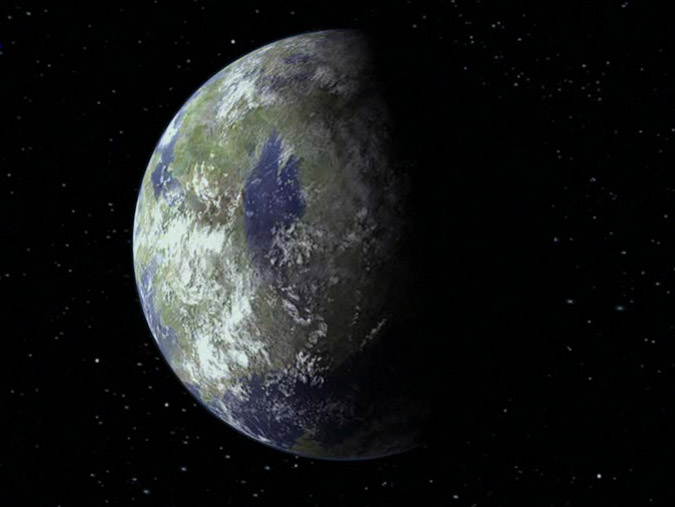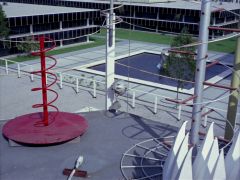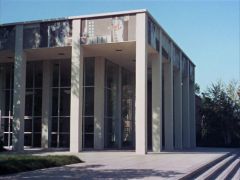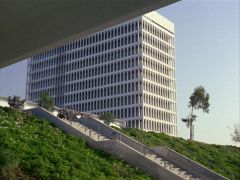Deneva (FASA)
| Coordinates | 45.8, 52.8, 96.9 |
| Astrometrics | Beta Darius IV |
| Affiliation | UFP |
| Planetary Class | M |
| Gravity | 1.15g |
| Satellites | 3 |
| Diameter | 9700km |
| Equatorial Circumference | 14,500km |
| Total Surface Area | 300,500,000km² |
| Total Land Area | 135,225,000km² |
| Hydrosphere | 55% |
| Length of day | 25.5 hours |
| Advertising |
A Class M planet considered by many to be one of the most beautiful in the galaxy, Deneva was colonized[1] by Centaurans in 2164.[2] It later became a Federation world, and was used as a freighting line base in the region.[1] Deneva — the fourth[2] planet of seven orbiting a moderate white star,[3] Beta Darius, in Quadrant IV of the Federation[2] — served as a ship repair and resupply center during the Romulan War,[2] and after the war, it served as a key supply station for many cargo ships, which would make regular trips from Deneva carrying supplies to the nearby asteroid belt for the miners stationed there, and bringing cargo out. Montgomery Scott was an engineering advisor on a couple of those freighter runs.[1]
Deneva boasted a population of over 1 million by the 2208, mostly centered around the capital city,[1] a port city named New Sacramento.[3] By 2223, that population had grown to between 4 and 4.5 million.[2] Aurelan and George Samuel Kirk were among the colonists, though that year they were victims of an infestation of neural parasites that caused mass insanity and many deaths in the colony. Sam’s brother, Captain James T. Kirk of the U.S.S. Enterprise NCC-1701, managed to talk with Aurelan right before she died, and learned that the large single-celled creatures controlled the actions of their Human hosts with intense pain. An infested colonist had killed himself trying to drive the organism from his body by flying himself into the Denevan sun, and that led the Enterprise personnel to learn that the parasites were adversely affected by ultraviolet radiation. The crew placed 210 satellites around the planet to bombard the surface with intense ultraviolet radiation, and succeeded in eradicating the infestation.[1]
Image Gallery
Notes and References
- ↑ 1.0 1.1 1.2 1.3 1.4 Roddenberry, Gene (Executive Producer). "Operation -- Annihilate!." Star Trek, Season 1, Episode 29 (Production 29). Directed by Herschel Daugherty. Written by Steven W. Carabatsos. Desilu Productions, 13 April 1967.
- ↑ 2.0 2.1 2.2 2.3 2.4 Menke, Bernard Edward and Rick David Stuart (Authors). The Federation. Star Trek: The Role Playing Game. Book 2011. Cover art by David R. Deitrick. Illustrations by Todd F. Marsh, John C. Tylk, Bob Eggleton, Daniel E. Carroll, and Jay Harris. FASA Corporation. 1986.
- ↑ 3.0 3.1 Maynard, Jeff (Author). Star Trek Maps. Star Trek. Book. Bantam Books. August 1980.





